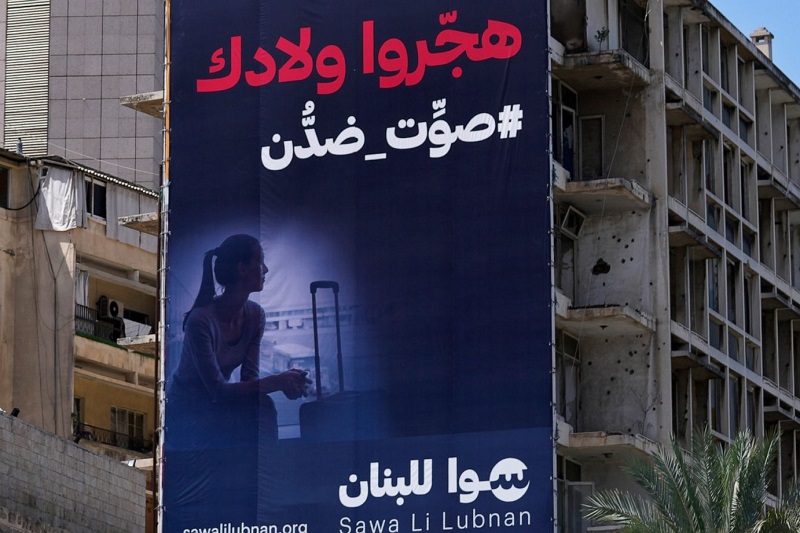
Lebanon elections 2022: Here’s what the blue ink on voters’ fingers mean
Many early voters in Lebanon have gone to social media to post pictures of their ink-stained fingertips as a symbol that the process of selecting the country’s next Parliament is now beginning.
After casting their ballot and signing next to their identity at the polling station, voters dip their finger in a jug of dark blue ink to complete the voting procedure.
While many voters proudly flaunt their inked fingers as proof of their civic responsibility, others say that the ink is difficult to erase. However, there’s a reason for that.
Blue Ink in Elections
According to the Lebanese Association for Democratic Elections, the purpose of the method, which was implemented for the 2009 elections, is to make it evident that a person has voted, preventing them from voting again. Before 2009, they used to staple an electoral card after casting their vote.
In 2019, a survey by the non-governmental organization Transparency International found that 47% of Lebanese residents had been offered bribes in order to get votes.
Assets for Elections
The Interior Ministry will use 25,000 vials of ineradicable ink acquired by the UN Development Program’s Lebanese Electoral Assistance Project, which is primarily sponsored by the European Union.
According to The National, the project has a $8.6 million budget, which will be used to buy 2,000 ballot boxes, 20,000 voting booths, and 10,000 Covid-19 safety kits, among other things, for the May 15 elections.
Financial Support After Crisis
Officials in Lebanon have requested international assistance to finance the parliamentary election as the nation struggles to recover from an economic crisis that started in late 2019.
Long-term financial mismanagement by the country’s leaders caused the Lebanese pound to drop 90% of its value, according to the World Bank, making it one of the worst crises in the world since the 1850s.




